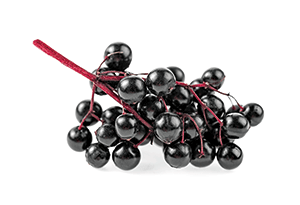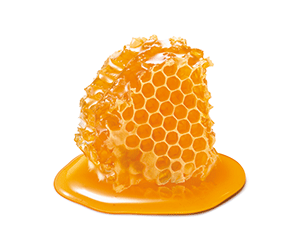Your winter survival guide

Your A-Z of natural ways to fight colds and flu this winter
Bone broth
“Hot liquids help to decongest and to keep you hydrated,” says Liz O’Byrne from The Aloe Tree Ennistymon. “Bone broth is rich in minerals that help support the immune system, such as zinc and amino acids such as arginine, essential for immune function.”
Carrageen
“Carrageenan seaweed, or moss, is thought to cure coughs, colds and chest congestion,” says Liz O’Byrne. “Simmer a handful of moss in hot water for 5-10 minutes, allow to cool and add lemon and honey to taste.”
Echinacea
“Echinacea boosts the immune system and has been shown to have antiviral properties,” says Sian Eustace of Healing Harvest in Kinvara, Co Galway. “The tincture form is best as liquids are more easily absorbed.”
“Echinacea is a powerful herb that can reduce the symptoms of colds, flu and other infections,” agrees Liz O’Byrne. “Research has shown that it increases the numbers of white blood cells needed to fight infection.”

Elderberries
“Elderberry syrup is anti inflammatory and anti viral,” says Liz O’Byrne. “Studies have shown that it can shorten the duration of a cold or flu and relieve sinus infections. It’s delicious in smoothies or yoghurt.”
“Elderberry is naturally high in vitamin C and the bioflavonoids which help its absorption,” says Sian Eustace. “Syrups are usually preserved with sugar, though some may use honey, so you may prefer to opt for a tincture. Some products on the market combine elderberry with ginger, honey or propolis.”
Garlic
“Garlic has anti-microbial, anti-viral and anti-fungal properties and is thought to relieve symptoms of colds and other infections,” says Liz O’Byrne. “Eat raw if possible or semi-cooked – add to soups, curries or casseroles towards the end of cooking.”
“Garlic is antibacterial and also helps to unblock the sinuses,” says Sian Eustace. “It can be taken as a capsule, and there are lots of recipes for drinks with other ingredients such as ginger, cayenne and horseradish. I increase the amount I use in cooking during the winter.”
Ginger
“Ginger is great for those of us who suffer from poor circulation,” says Sian Eustace. “You can cook with it, eat it crystallised, pickled or preserved, suck ginger lozenges or drink ginger tea. The most effective way to make ginger tea is to grate a thumb-sized piece of root into a mug and pour on boiling water. The same ginger can be used around three times by simply topping up with fresh boiling water.”
“Ginger is anti-inflammatory and anti-microbial,” says Liz O’Byrne. “Add it to curries, soups and smoothies.”

Local honey
“I love to have local honey in the house over the winter as it is excellent for soothing sore throats,” says Sian Eustace. “Honey has natural antibacterial properties and, if you can find one where the bees were harvesting from ivy or thyme, the properties of those plants are an additional support for the chest.”
“Raw honey hasn’t been heated or pasteurised and it naturally contains vitamins, enzymes and antioxidants,” says Liz O’Byrne. “Also propolis, sold in health stores, is a substance that bees use to seal in their hives and it has anti-bacterial and anti-viral properties. It can be great to soothe sore throats and colds. Add to porridge, smoothies or eat straight from the spoon.”
Probiotics
“Taking probiotics, drinking kefir and eating other fermented foods can encourage the healthy bacteria in the gut,” says Liz O’Byrne.
“Around 80% of your immune system lives in the gastrointestinal tract,” says Sian Eustace. “So it is worth boosting good gut bacteria to support your immunity through the winter months. This can be done through a probiotic supplement or by eating fermented foods such as yogurt, kefir, sauerkraut or kimchi.”
Salt and water
“Use salt and water to gargle for a sore throat or as a sinus rinse for sinus infection,” says Liz O’Byrne. “Dissolve ½ teaspoon of salt in a cup of tepid water. Use a Neti pot as a sinus rinse.”
Vitamin C
“Vitamin C is crucial for boosting the immune system,” says Sian Eustace. “In powder or crystal form it is cost effective and well absorbed,” says Sian Eustace.
“Vitamin C and zinc deficiency can cause reduced resistance against certain pathogens as it’s a co-factor in the immune response,” says Liz O’Byrne. “Lemons are a good source of vitamin C and can be taken with warm water and honey to help alleviate symptoms.”
Vitamin D
“Due to the lack of sunlight in the winter months in Ireland, we can all become low in vitamin D so it is something to consider supplementing,” says Sian Eustace. “Vitamin D comes in lots of different strengths and forms, including tablets, liquids and sprays.”
Zinc
“Zinc is an important ally in immune boosting,” says Sian Eustace. “There are lozenges that combine zinc and vitamin C, but watch out for sugar in the ingredients as it can counteract the positive effects.” Zinc can also be found in nuts and seeds, grains, fortified breads and breakfast cereals, beans and legumes as well as red meat, poultry and seafood.
Other natural help during winter
Mind your hands – “Hands can become chapped and sore during the winter,” says Sian Eustace. “Hand creams that contain lanolin and/or beeswax provide a natural barrier against the wet and cold and can be a lifesaver for those with chapped hands. Do be aware of allergies to lanolin or bee products in case of a reaction.”
Exercise – improve your body’s defences by exercising 20-30 minutes per day. Make it low intensity though, or you could be putting your body under strain. Walking, swimming, cycling and yoga are all good.
Wash your hands – with soap and water regularly.
Drink lots of water – to keep your mucous in your nose, throat and mouth moist and lesson the chance of a bug latching onto them.
Get an annual flu jab – ask your GP if you need a flu jab.
Cut down on stress in your life – it can weaken the immune system.
More Rude Health articles...
Articles from our latest issue...